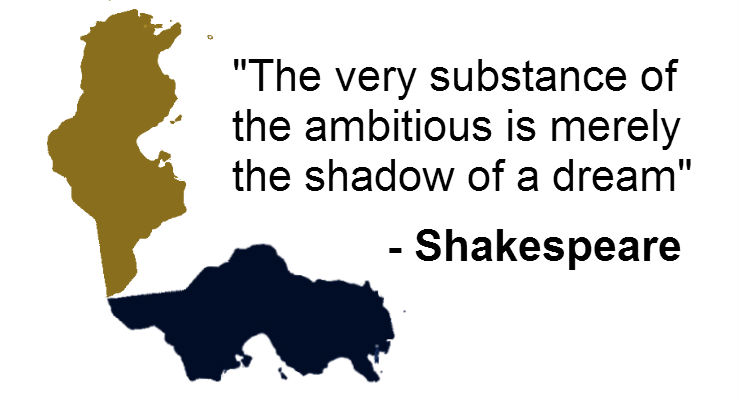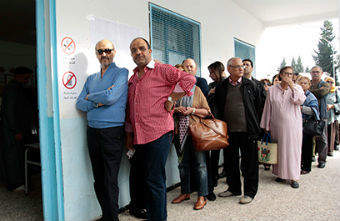
Voters in Tunisia are set heading to the polls in a historic Presidential election which will be the first since the Arab Spring revolution of 2011 that ousted the longtime President Zine El Abedine Ben Ali. That historic revolution sparked uprisings throughout the Arab world following the Arab Spring banner. While many of those uprisings have brought little else but violence, the real Arab revolution continues to be centered in Tunisia.

These elections are coming after Tunisia conducted its first successful parliamentary elections where the leading Islamist party was ousted by a recently formed political party Nidaa Tounes (which translates into ‘Tunisia calls’). During the recent Parliamentary elections, the party won 85 seats out a possible 217 which knocked the Islamist party, also known as the Ennahda party into second place with 69 seats in Parliament, far behind the leading Nidaa Tounes party.
“What are we celebrating today? We are celebrating freedom, we are celebrating Tunisia, we are celebrating democracy,” Islamist Party leader Rachid Ghannouchi said following the Parliamentary elections which took place on Sunday, October 26th, 2014, a statement that could be seen as surprising giving the fact that they just lost a majority of the seats within the parliament, reducing their political power.
The presidential elections includes a crowded field of candidates like Beji Caid Essebi, perceived as the front runner of the 27 member field as the leader of the Nidaa Tounes party. Nidaa Tounes was definitively victorious in the parliamentary elections and is expected to come out on top.
“In this period we need him, his capacity and his expertise,” said Tarek Ben Slimen, a printer from the Tunisian capital of Tunis, in a reflection of the popularity of the new Nidaa Tounes party.
Mr. Essebi is a veteran politician who has a lifetime of political service behind him, having served three times as a minister, once as a head of parliament and also as an ambassador. At a campaign rally Mr. Essebi told supporters, “We will work with other parties because this is a sensitive period during which we need to show national unity”. Essebi’s campaign has been full of similar calls to bring the numerous political parties together after the election.
A main challenger to Mr. Essebi, Moncef Marzouki who is a veteran human right’s activist and longtime politician, warned his supporters at a recent campaign rally saying, “Others are talking about the authority of the state. I want to talk about the authority of the people. It starts with you, your ideas, your freedoms. This Sunday marks an important date in history; will you allow the old regime to come back or not?” Mr. Marzouki even warned his supporters, about Essebi’s political background and connections with the former President Ben Ali.
Although there are concerns about Mr. Essebi’s political background and connections with the former President, he Essebi has been able to gain support from urban voters and college students like Khalid El Bez who said at a rally, “We are convinced Essebi is the best. He gave us the opportunity for a democratic election after the revolution and he gave up power in a democratic way. Personally, I prefer an old guy who knows what he is doing to a young guy who is not.”
The world will be watching to see if the country that started the Arab Spring will be able to conduct a peaceful, non-violent election. It would be a confirmation of the real Arab revolution.
Leave a Reply